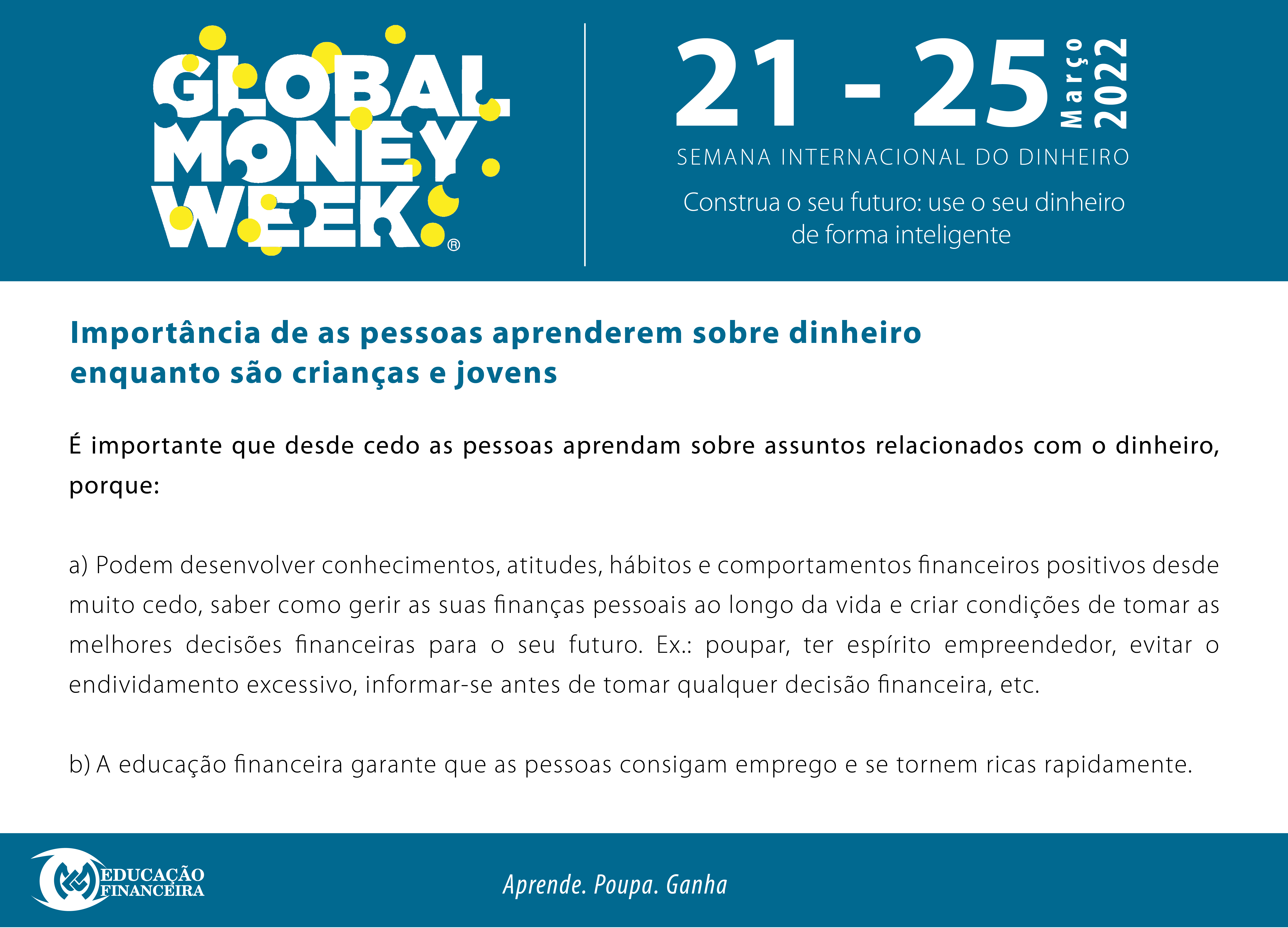Global Money Week
The Global Money Week (GMW) is an annual global financial awareness campaign, organized and promoted by the International Financial Education Network of the Organization for Economic Co-operation and Development (OECD), with the main goal of ensuring that children and young people have access to quality financial education, learn about financial issues and become capable of making the right financial decisions for the safety and improvement of their financial well-being, as well as strengthening their financial resilience.
In 2022, the Banco de Moçambique promoted GMW celebrations between March 21 and 25, with several activities in select secondary schools nationwide.








